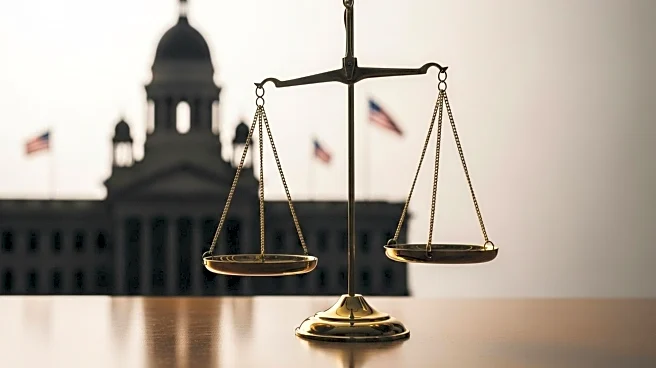What's Happening?
A U.S. appeals court has ruled that most of President Trump's tariffs, imposed under the International Emergency Economic Powers Act (IEEPA), are illegal. The court found that the IEEPA does not grant the president the authority to impose tariffs, duties, or taxes. This decision upholds a previous ruling from the Court of International Trade. The tariffs, which were part of Trump's strategy to address trade imbalances, will remain in place until mid-October, allowing time for an appeal to the U.S. Supreme Court. President Trump criticized the ruling, calling it a disaster for the country and indicating plans to escalate the matter to the Supreme Court.
Why It's Important?
The ruling represents a significant setback for President Trump's trade agenda, which aimed to address perceived unfair trade practices. The decision could have immediate impacts on the U.S. economy and global markets, as tariffs affect import costs and profit margins for businesses. The uncertainty surrounding the tariffs may deter international trade with the U.S., potentially dampening economic activity. Politically, if the Supreme Court sides with Trump, it could set a precedent for broader use of the IEEPA, affecting future presidential powers.
What's Next?
The case is likely to proceed to the U.S. Supreme Court, where a conservative majority could influence the outcome. If the Supreme Court reverses the appeals court decision, it could bolster Trump's authority to use emergency powers for trade policies. Conversely, if the tariffs are ruled illegal, it could lead to financial market uncertainty and questions about the repayment of import taxes. The decision could also impact existing and future trade deals with major economies.
Beyond the Headlines
The legal challenge highlights the balance of power between the presidency and Congress, particularly regarding economic policy. The case could influence how future administrations use emergency powers, potentially reshaping U.S. trade policy and international relations. The outcome may also affect President Trump's political standing and his reputation as a dealmaker.










